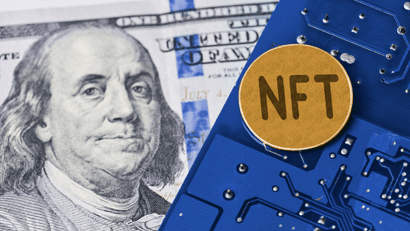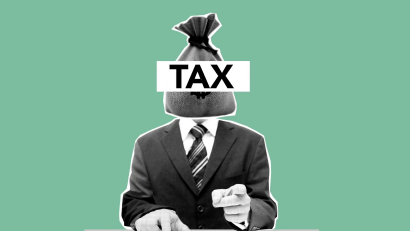Every day, more people are investing in digital assets than ever before. One of the most popular cryptocurrencies is NFT (non-fungible tokens). These tokens are unique, and each one has its value. Because NFTs are becoming more popular, creators and investors must understand how NFTs and taxes apply. Therefore, we will discuss how NFTs and taxes work and tips to minimize your tax liability.
What is an NFT?
NFTs are non-fungible tokens. They represent a digital asset that cannot be replicated. For example, Bitcoin is fungible. It doesn’t matter if you paid $100 or $50,000 for it — any two bitcoins are interchangeable. That makes them fungible because they’re all precisely the same, even though they may be at different prices at different points in time.
NFTs are unique items that could include rare art pieces such as digital paintings/drawings. The key here is that each piece of art, each NFT-based collectible, is unique and one of a kind.
Are Non-Fungible Tokens Taxed?
Because of the relatively new NFT market, there is still a lot of uncertainty about how NFTs are taxed. However, we know NFTs are treated as property by the IRS, so it seems likely that they would be subject to capital gains taxes most of the time.
What is Capital Gains Tax?
It is a tax on profit from selling something for more money than someone purchased it. When you sell an NFT or anything else, if there’s a gain (or loss), that transaction will be subject to capital gains taxes. The IRS will consider any NFTs sold between individuals and NFT creators for NFT tokens received via Cryptocurrency Exchanges like Coinbase.
How the IRS treats NFTs
IRS considers short-term or long-term gains and losses with an investment like an NFT. The short term applies when the holding period is less than one year; the long term applies when the holding period is at least one year. In addition, longer holding periods result in lower tax rates on your capital gains or losses.
So, if you buy an NFT for $100 and sell it for $200, you’ll have to pay taxes on the $100 profit. However, if you lose money when trading an NFT, you can deduct those losses from your taxable income. For example, if you sell an NFT for $80 but pay $100 for it, you would have a capital loss of $20.
NFT are Taxable Even if You Don’t Sell them
As we have discussed, the IRS considers NFTs property. Therefore, there may be a tax liability if you sell an NFT for more than your original purchase price. But what if you don’t sell it? Is NFT taxable then? The short answer is yes, NFTs are taxable even if you never choose to sell them.
Airdrops and Giveaways
The IRS does not tax you when you receive airdrops or giveaways, but there is an exception to this rule. If the NFT had a monetary value when someone gave it away, and you sell it for a profit later on, they will tax you at capital gains rates.
Gas Fees and Capital Gains
We can trade NFTs in markets, where you pay a small fee for each transaction. This fee is called “gas.” The gas price fluctuates according to the NFTs blockchain congestion. Still, it has been relatively stable at around USD 0.01 per kilobyte since mid-2017.
Penalties for Not Paying Taxes on Time
Not only could you face a fine from the IRS, but also state and local tax agencies. So research what taxes apply to your NFT transactions and pay them on time.
NFT Gains and Higher Tax Rates
The tax rates for capital gains vary depending on your income level and filing status. For most people, the capital gains tax rate is 15%. However, if you are in a high-income tax bracket, your capital gains tax rate could be as high as 20%. Besides the federal income tax, you may also owe state and local taxes on your NFTs. State and local taxes can add up quickly, so it is crucial to understand the rules in your area.
NFT Valuation
For valuing Non-Fungible Tokens, there are a few key things to consider. First, these tokens represent unique assets, so their value may be more difficult to find out than with traditional fungible tokens. Another consideration is how capital gains tax will apply where NFTs are sold for a profit.
Because of the uniqueness of each NFT, buyers and sellers will need to agree on a fair price for transactions to take place. It could prove challenging if one party believes that a token is worth more than the other does.
Although NFTs are still a relatively new concept, many governments have regulated them with capital gains taxes. Suppose you live in Canada, where NFT taxation is still uncertain, as an example. In that case, this could mean that even if your NFT isn’t taxed right now, it might be later on down the road when/if more clarity is brought to the matter by governing bodies.
How to Report NFTs on Taxes
When filing for NFTs, you must complete Schedule D of IRS form 8949 and enter the NFT’s information onto it.
For every NFT you own, you must report the following:
- Date acquired
- Description of property
- Cost basis (purchase price)
- Proceeds from the sale (if any)
- Adjusted basis (cost basis + improvements – depreciation)
Even if you did not sell your NFT during the year, it is required. The proceeds from a sale are vital because they help determine your capital gains or losses. If there was no sale, use the fair market value on the date of acquisition as the proceeds amount.




